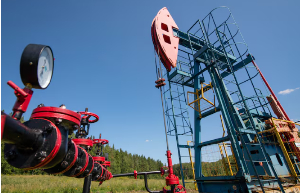A principal tool for the management of national mineral resources is a system of allocating rights to mining companies and persons to carry out minerals exploration and mining operations in return for the performance of explicit and enforceable obligations.
Mining in the history of nations predate modern organized societies and governance. People of the stone-age through the medieval eras were engaged in various forms of mining for their survival. They mined quarry and other metals for their existence. Over time, modern societies made rules and regulations which crystalized into laws for the purposes of regulating mining activities for societal benefits without harming nature and the existence of the human race.
In some developed nations, laws have been made to prevent mining activities in specified areas for the sole purpose of protecting living organisms and keeping the natural state of those areas intact. That is why countries like the U.S.A have over the years prevented the drilling of oil for example in Alaska and other such areas even though they were the single largest importers of crude oil in the world.
Ghana had its colonial name, ‘Gold Coast’ not because the first group of white people on our land discovered gold, they came to meet ‘Sika Kokoo’ on our land. Our ancestors were mining gold on their lands for largely decorative purposes and show of wealth. Ghana is very rich in gold, diamonds, bauxite, manganese, salt, iron ore, limestone and kaolin. Others are lesser known minerals like mica, columbite-tantalite, feldspar, silica sand, quartz, dimension stones and others. However, gold mining accounts for about 90 percent of all mineral revenues generated annually spanning 25 years or more in recent times.
Nobody goes fighting over the raw bauxite or manganese, the fight has always been on gold and diamonds even in their raw states. Laws have been made and revised over time to ensure that precious minerals of gold and diamond are mined in more responsible ways that will not negatively affect the environment. The constitution of the land entrusts the minerals of the land in the care of the President of the Republic for our collective benefit as a people. Since gold mining, and illegal mining for that matter, has become a justifiably national issue, it is important for us as citizens to know what the law says in that area.
The prevailing legislation of Act 703, 2006 (1) with its amended portions of Act 2015, states that ‘Every mineral in its natural state in, under or upon land in Ghana, rivers, streams, water courses throughout the country, the exclusive economic zone and an area covered by the territorial continental shelf is the property of the Republic and is vested in the President in trust for the people of Ghana’.
My understanding of the above is that if I own a piece of land in my village, and there is any form of mineral so properly defined ‘in its natural state, in, under or upon land’, I have no right to mine the mineral or give it away to anybody else to mine because that mineral is the property of the Republic and is vested in the President. To attempt to mine it or offer the piece of land to anybody to mine will be illegal and therefore a breach of the law.
Indeed, section (2) of the Act states that ‘where land is required to secure the development or utilization of a mineral resource, the President may acquire the land or authorize its occupation and use under an applicable enactment for the time being in force’. That is to say that the President has the power to compulsorily acquire the land in the interest of the public with its attendant compensations, relocations, resettlement etc. as long as it has minerals embedded ‘in, under or upon’ it.
The obvious question therefore is that, with all these powers entrusted in the hands of the President, why did we sit down for individuals, Chiefs and other such people to illegally give out lands to miners without the state doing anything about it? It is a simple question from a simple mind.
Now Section (4) of the Act Section 4 (1) of the Act states: ‘The Minister may, by Executive Instrument declare land, not being the subject of a mineral right, to be observed from,
(a) becoming the subject of an application for a mineral right for a mineral, or
(b) becoming the subject of an application for a mineral right in respect of specified minerals or of all minerals except specified minerals.
(2) An Executive Instrument issued shall be by the authority of the President.
Again my understanding of the above is that the Minister for Lands and Natural Resources is the official empowered by law to act on the authority of the President on matters of mining. Now once again, the areas that are ‘prohibited from mining’, which have become bones of controversy and public angst, did the Minister declare them as such, and if the Minister did, whose responsibility it was or still is, to ensure that people who have broken the laws by invading on land ‘not being the subject of a mineral right’ to deal with the culprits?
Why did the Minister and his officials sit down all these while for people, no matter their nationality, to invade areas that are not subjects of mineral rights to devastate the area in their crudest forms before making efforts at redeeming the situation? Complicity, incompetence, sheer indifference or negligence in official functions? In this case, I am talking about the position of the Ministers who have been there and not this particular Minister.
Section 5 (1) of the Act 703 which confers the power to grant mineral rights states ‘ Subject to subsections (4) and (5), the Minister on behalf of the President and on the recommendation of the Commission may negotiate, grant, revoke, suspend or renew mineral rights in accordance with this Act’.
Subsection (2) says ‘Where the Minister grants a mineral right, the Minister shall determine the land subject to the grant. Subsection (3) also states ‘Where the Minister determines not to grant an application or determines to grant an application over a part of land applied for, the Minister shall give the applicant written reasons’.
In such areas where mining operators have occupied, the question once again is that did the Minister exercise his functions in subsection (3) subject to subsections (4) and (5) of section 5? If yes, why are we now complaining about the illegality of the actions of those who have ripped bare our forests and farmlands in broad day light? If no, was the Minister aware of the activities of the ‘criminals’ or not?
The following is the most interesting of the Act.
Subsection (4) of section 5 of the Act states ‘A transaction contract or undertaking involving the grant of a right or concession by or on behalf of a person or body of persons, for the exploitation of a mineral in Ghana shall be subject to ratification by Parliament.
Subsection (5) goes on to say ‘Parliament may, by resolution supported by votes of not less than two- thirds of all the members of Parliament, exempt from the provisions of subsection (4) of this section a particular class of transactions, contracts or undertakings’.
Now, my patriotic compatriots against illegal mining in Ghana and its concomitant destructions of our lands and water bodies, with the powers conferred on the Minister for Lands and Natural Resources and Parliament, did the Minister, on the recommendations of the Minerals Commission, present any of such applications for mining rights to Parliament for ratification? How many of such recommended applications were sent to Parliament by the Minister for ratification over the last 10 or more years?
How many of such applications did Parliament ratify and how many of them were given exemptions by Parliament per the provisions of subsection (4) of section (5) of the Act by resolutions of two thirds of the members of Parliament? The law makes no classification of categories of mining operators. Daavi, just three tots of the bitters.
Opinions of Tuesday, 2 May 2017
Columnist: dailyguideafrica.com















